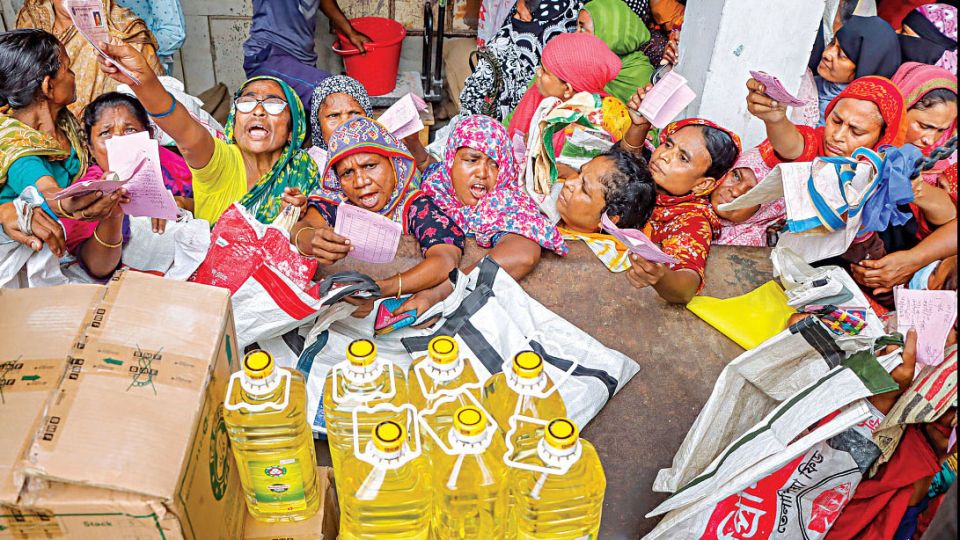April 4, 2024
DHAKA – Around 5 lakh people in Bangladesh likely fell into extreme poverty between the fiscal years 2022-23 and 2023-2024 due to the erosion of purchasing power, said the World Bank.
“Weak private consumption growth and high inflation have halted poverty reduction. Higher food prices particularly impacted poor households, which allocate over half of their budget towards food expenditures,” it said.
In addition, 8.4 lakh people are projected to join the ranks of the moderately poor, who earn $3.65 a day in purchasing power parity (PPP), said the bank in its Poverty Macro Update on Bangladesh.
PPP is a measure that compares the relative value of currencies by examining the prices of a fixed basket of goods and services in different countries.
The World Bank defines extreme poverty based on an international poverty income of $2.15 a day. According to the definition, Bangladesh’s extreme poverty rate is forecasted to rise to 5.1 percent in FY24 from 4.9 percent the previous year.
The rate of moderate poverty is expected to increase to 29.4 percent at the end of FY24, up from 29.3 percent a year ago. The report adds that the ratio of the poor population is expected to decline from the next fiscal year.
“Elevated inflation will put pressure on consumption, while forex rationing will constrain private investment,” the report states.
However, it also predicts that inequality will remain stagnant.
The WB’s estimate of extreme poverty closely aligns with the estimates of the Bangladesh Bureau of Statistics (BBS), which states that the ratio of the extremely poor is 5.6 percent.
The BBS’s estimate of moderately poor people was 18.7 percent in 2022.
The Washington-based lender said that economic conditions deteriorated in FY23 as inflation accelerated and the Balance of Payments deficit widened, driven by a financial account deficit.
Forex rationing restricted imports, leading to electricity blackouts. Rising financial sector vulnerabilities have dampened growth prospects.
The global lender reported that unemployment was low in 2022 at 3.6 percent in Bangladesh, and the female labour force participation rate at 42.7 percent was almost half that of males.
However, job quality deteriorated between 2016 and 2022 as the percentage of employees earning more than $3.65 a day fell from 77.9 percent to 50.2 percent.
The World Bank said that estimated real GDP growth slowed in the first half of FY24 as private consumption and investment growth stagnated.
“On the supply side, industrial growth moderated as energy shortages and import restrictions offset steady external demand for RMG. The services sector slowed as domestic purchasing power declined, while agricultural growth remained modest.”
“This has impacted labour income, especially for vulnerable populations working in services and agriculture.”
Inflation remained elevated in the first half of FY24, declining marginally to 9.7 percent in February 2024, driven by rising food and electricity prices.


